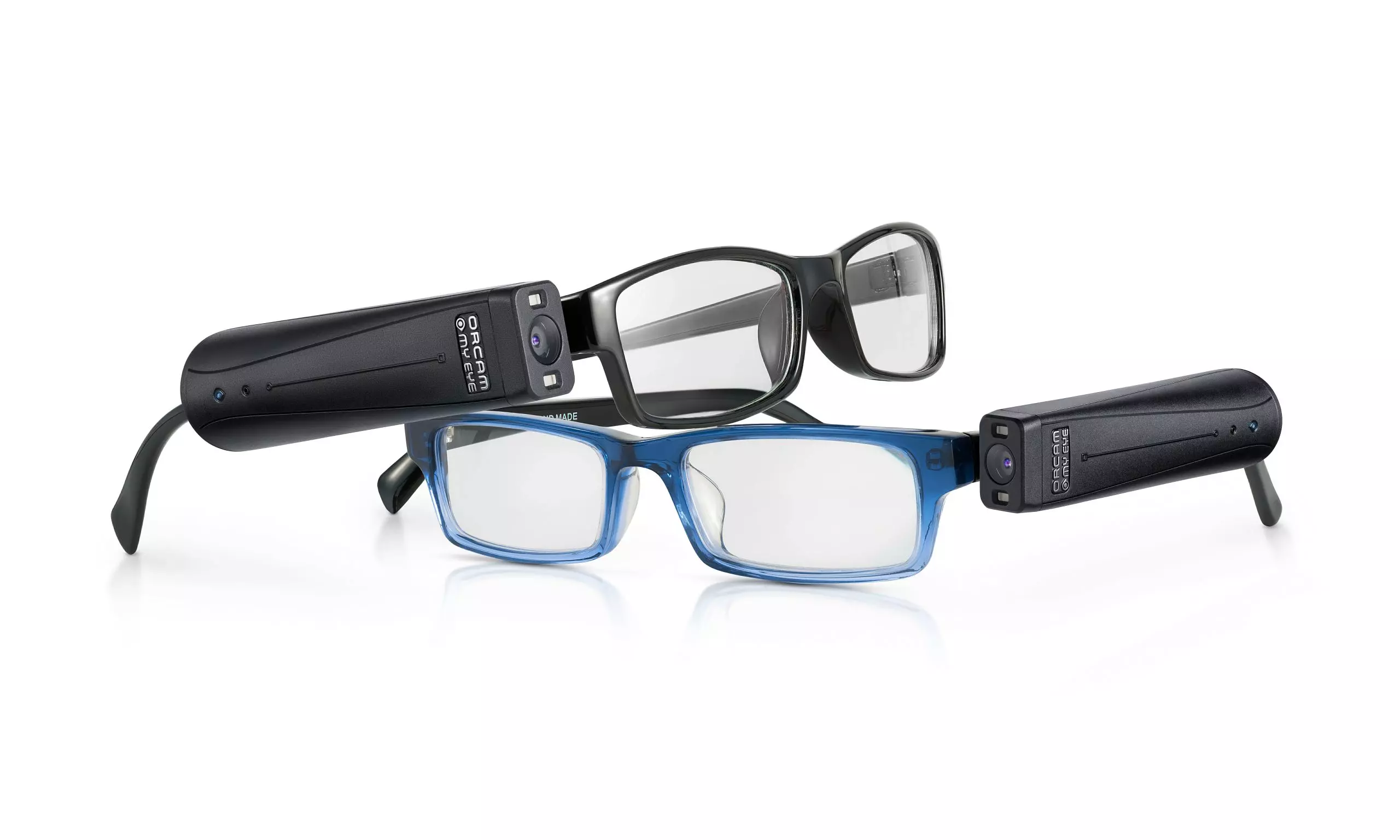Smart Glasses For the Visually Impaired, Reading Is Possible Again
2015-12-28 | By Orcam Staff

Mark Belcher is Community Services Development Manager at Henshaws Society for Blind People. He is a leading authority on technology developments for those with sight loss. He is one of the first in the UK to get the opportunity to meet with an OrCam representative and learn about the OrCam device. Here is what he had to say…
Guest post by Mark Belcher
Yesterday I had a meeting with a representative from OrCam and they brought along a very exciting wearable device that I want to tell you about.. Here is my insight into the OrCam smart glasses for the visually impaired.
What is it?
I’ve taken this statement from their website:
“An intuitive portable device with a smart camera mounted on the frames of your eyeglasses, OrCam harnesses the power of Artificial Vision to assist people who are visually impaired.” The OrCam smart glasses for the visually impaired recognize text, products and faces, and speaks to you through a mini earpiece.
It’s a standalone device that consists of a small smart camera and a base unit connected by a thin wire. The camera is tiny and weighs less than an ounce (about 29 grams) and the base unit weighs only a few ounces and is about the size of a glasses case.
The base unit contains all the necessary elements to make this device get to work; the hardware, the software and the all-important rechargeable battery. OrCam say that the battery is designed to last for a full day of reasonable use. It comes with a plug in international charger and two mounts so that you can attach it to multiple glasses and a travel case.
What does it do?
Firstly, what it does, it does well… I’ve had it in my hands long enough to understand this device is a game changer for some people, it’s intuitive, easy to understand / use and in my testing very accurate, although not perfect – but what is?
1) It reads
The device converts printed text to speech. You can read most digital text, such as that on a television or computer. It reads printed text, such as books, newspapers, food labels, restaurant menus, and even street signs.
2) It identifies people
The device identifies known faces. Basically you take an image of the face you want to be able to recognise and add a name. The device will then announce the name of that person once they enter the camera’s view.
3) It recognises specific products
In a similar way to the face recognition, you can programme these smart glasses for the visually impaired to recognize objects around you; e.g. consumer products, money notes and credit cards
How does it do it?
It’s magic! Well maybe not, but I’m not in the position to tell you ‘how’ it actually works. I’m sure a boffin at OrCam could explain how it literally does what is does but I’m betting I wouldn’t understand a word they tell me? What I can tell you is how you make it do its magic!
The OrCam device responds to a simple intuitive gesture, you look at the item so the camera has a view then you can either point your finger and the device will automatically take an image or press the trigger button to manually take an image. It will then read aloud the text, face or pre-programmed product description.
Future Enhancements
Time stops for no person, so OrCam is already working towards future enhancements. A further statement from their website: “In the future, OrCam will be equipped with the ability to recognise known faces and identifies products. Imagine using OrCam to orient yourself by reading outdoor signs and teaching it to memorise places you’ve already visited. It will be able to tell you which bus is coming towards you. OrCam will even be able to tell you the colour of your clothes.”
What will it cost?
The OrCam smart glasses for the visually impaired will retail in the UK at £2,200 but they currently have a pre-launch price of £1,600.

Mark is the Community Services Development Manager at Henshaws. His responsibility is to explore, develop and maintain community services programmes that inspire independence. He has a particular interest in technology.
To read more of Mark’s work, visit the Henshaw’s blog page at http://henshaws.org.uk/blog/



